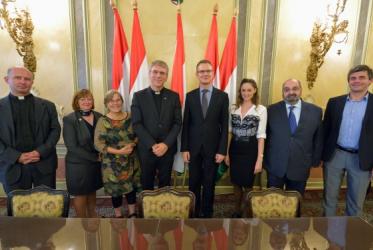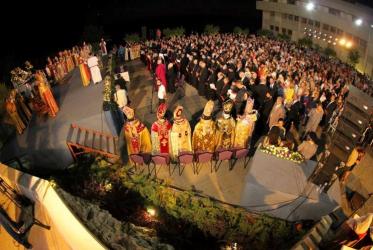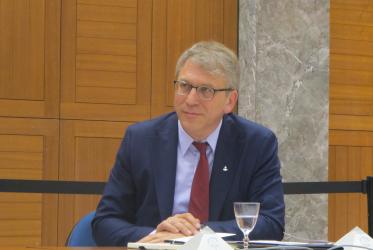Displaying 381 - 400 of 467
29 September 2015
WCC urges responsibility for and support to the refugees in Europe
04 September 2015
New departure in Taizé towards an ecumenism of solidarity
20 August 2015
Pilgrimage for climate justice continues in Norway
04 August 2015
WCC Executive Committee speaks out on migrant crises
12 June 2015
WCC welcomes resumption of peace talks on Cyprus
18 May 2015
Walking to Emmaus in the Holy Land, and Sweden
12 May 2015









